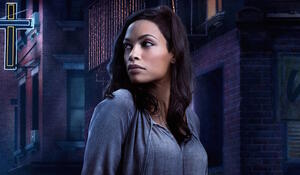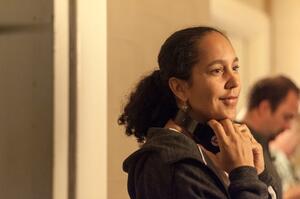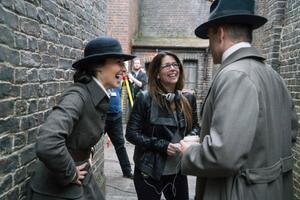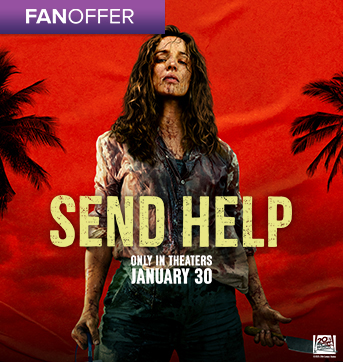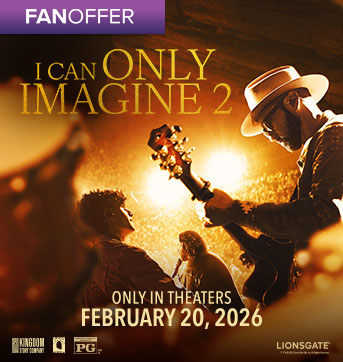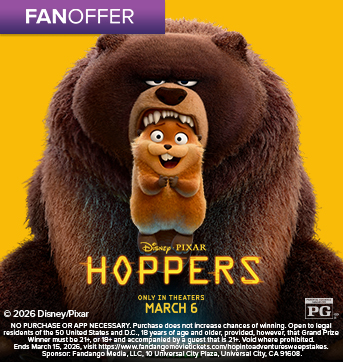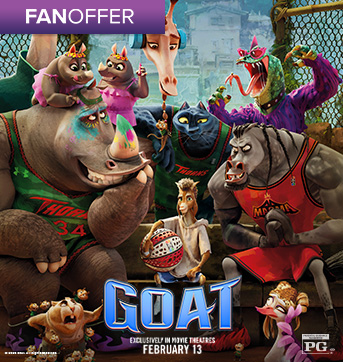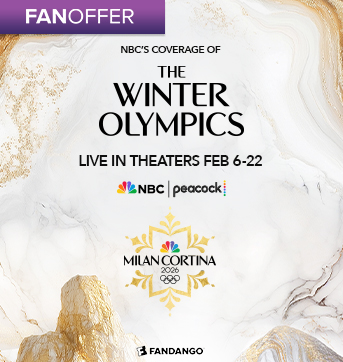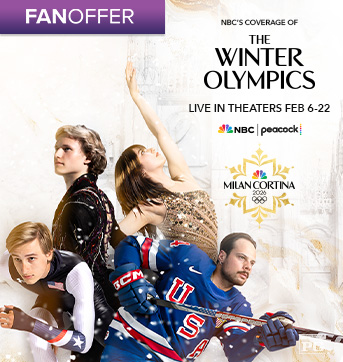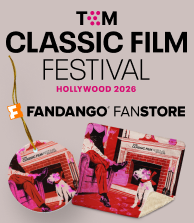That and more burning questions answered by directors Joe and Anthony Russo, who give us a behind-the-scenes look at the creative process of making Captain America: The Winter Soldier.

On melding superhero cinema with ‘70s-style conspiracy thrillers:
Joe Russo: It was a double whammy when Marvel approached us, because probably two of the things that we really appreciated growing up were comic books and ‘70s genre movies. So for somebody to say, "Hey, do you guys want to make a comic book movie that's influenced by ‘70s genre films?" it was like a dream come true.
[So we said] "Okay, if he were to exist in a ‘70s thriller--it usually deals with very topical, political issues: it's darker; it's edgier. The stakes have to be high, because if you're not worried for the character, there's not going to be a lot of thrills in the movie. So that was deconstruction that we had to do, to ask ourselves at every turn "He's in this universe--how would the other elements around him be filtered or portrayed differently from the other films in this particular world?’
The ‘70s-era conspiracy films they recommend if you love Captain America: The Winter Soldier:
Joe: Without question Three Days of a Condor, because we refer to this movie as Three Days of Captain America. It's heavily influenced. We owe a great creative debt to Three Days of a Condor.
Anthony Russo: I always go back to The French Connection. What we love about that movie is that the character is so central to the action in that film, and we really tried to replicate that in terms of how we structured and executed this movie.
On planting Marvel-ous Easter eggs (listen for name check on a major, yet-to-be-seen Marvel character, and watch closely for familiar faces and names in unexpected places):
Anthony: It's something that we've been doing for years in our television work: both Arrested Development and Community are known for exactly that. We have a lot of fun with that sort of Easter egg. Here's Reddit's massive list of Community Easter eggs
We're film geeks, so we watch movies dozens of times. We like that there be stuff to chew on, on a second viewing. We like very active viewers, who like to be creative in their process of viewing a movie and thinking about a movie and experiencing a movie. So all of those tools just give you a more layered, rich experience for the audience. At the end of day, we're the audience for this movie.

"Now look, if you mess this scene up Robert Redford's coming in to kick your ass."
The challenge of setting each movie apart, yet still interweaving the Marvel Cinematic Universe:
Joe: It's great that as we were prepping the movie, we got to see cuts to Iron Man 3 and to Thor: The Dark World. You get to see what going on in the rest of the universe, tone-wise. Joss [Whedon] got to see a cut of this movie while he was working on the script for Avengers: Age of Ultron so he could see where we were going to leave Cap and Widow at the end of this film, and where he needed to pick them up going into that movie.
Anthony: Marvel's goal isn't to make one gigantically long movie. It's critical that each movie be unique from the rest, especially as they get deeper into the run. So their emphasis is always more on how is each movie different from what everybody else is doing as opposed to connected to everything.
How their comic book influences affected this film:
Joe: I started collecting comics in the early ‘80s when Frank Miller released The Dark Knight Returns series, and it started to become en vogue to deconstruct superheroes. That's what I like, and that's what I'm used to: this modernization of heroes where they went from Golden Age and Silver Age archetypes... and then suddenly writers started to ground them in the real world. And you went, "Wow! This is an interesting way to look at a superhero."

On Cap’s uniqueness as a Marvel hero who sees the flaws in the world around him:
Joe: We've compared him to Rocky where he has a very simple code and the journey that he goes on in the movie is not one of self-discovery. It's a journey of, "What is my place in the world?" And his place in the world is defined by his principles. And his principles seem to no longer exist in this world. As a character, you're not examining that internal flaw. You're examining a more external journey.
Anthony: That gave us our whole narrative structure. The fact that Cap is orientated in that manner: "Here's this thing that's unbreakable, and our whole task is to figure out how to break it." And that's the journey in the movie.

"Now if I could only figure out how to get out of here..."
On their sequel plans:
Joe: We're returning to do Cap 3, and we're very excited about it because we do feel like there's unfinished work here. There's thought that this movie really is a two parter, tonally. It's a cliffhanger. Maybe that's not the most appropriate term, but [REDACTED’s] arc still needs completion, and we would love to explore Black Widow more. She's such a fascinating and rich character, and when you put her into Cap's universe, it does something to him. It pulls something. It pulls different colors out of him as a character. So we would love to have Scarlett [Johansson] return for that movie.
Now go get your tickets!

